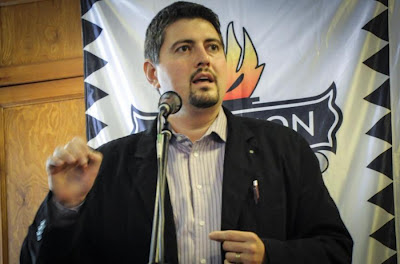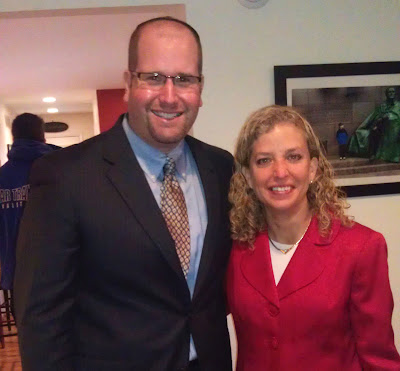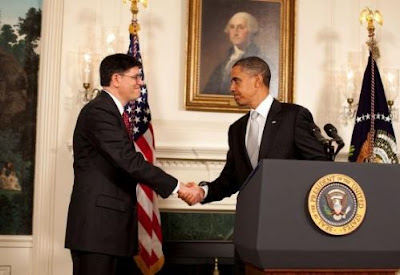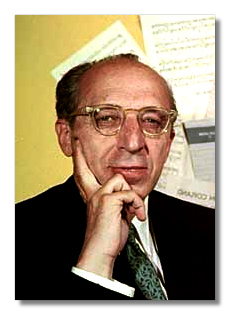Tuesday was the fourth time I heard Natan Sharansky speak. The second time I heard the former Prisoner of Zion speak was at Adat Shalom Synagogue not long after my bar mitzvah. I was still wearing the silver bracelet with the name of my bar mitzvah twin from the Soviet Union. The last two times I heard Sharansky speak were at an AIPAC lunch for rabbis in D.C. in 2008 and at this week’s Foundation for Jewish Camp conference in New Jersey. None of those three speeches even remotely compared to the first time I heard him speak.
 |
| Natan Sharansky speaks at the 2012 Foundation for Jewish Camp Leaders Assembly |
It was Sunday, December 6, 1987. I was a 6th grade Jewish day school student and traveled with my mother aboard a chartered flight from Detroit to Washington. The late David Hermelin led the plane in singing for the entirety of the flight. Our Detroit delegation filled two planes and we were among the throngs of people who congregated on the National Mall to call for immediate mass emigration for Jewish refuseniks out of the Soviet Union.
Wearing a cheap white painter’s hat that read “Let My People Go” and eating my bagel and lox breakfast donated by Detroit philanthropist and supermarket owner Paul Borman, I marched from the Washington Monument to the Capitol Building singing “Hinei Mah Tov.” I remember hearing Vice President George Bush and Elie Wiesel speak. But the moment I will never forget is when Natan (Anatoly) Sharansky came to the dais to address his 250,000 supporters. It was impossible to decipher exactly what he was saying in his broken English, but I knew that he had spent years in prison and was now a free man on a mission. I remembered singing the words to the Safam song at my 5th grade Zimriyah, “They call me Anatoly. In prison I did lie. My little window looked out on the Russian sky.”
 |
| With Natan Sharansky in 2008 |
On Tuesday, as I listened to him speak about the immense growth of Jewish camping in the Former Soviet Union, I was taken aback by how far Sharansky has come since that cold December Sunday in 1987. Within 25 years, he has not only transitioned from the life of a prisoner to a free man, but he has seen and done so much. He made aliyah to Israel on the day he left his Soviet prison cell and then became the de facto leader of the Russian immigrant community in Israel, winning election to the Knesset after forming the Yisrael BaAliyah party. He published his memoirs, defeated Russian chess champion Garry Kasparov, and is now the Chair of the Executive of the Jewish Agency for Israel.
It is truly remarkable how Sharansky has ascended to leadership in a quarter century, but it is part of the larger story about Russian Jewry. It is a success story. There are large, successful Russian Jewish communities in Israel and throughout the United States (and in the FSU and Germany). There are campus Hillels throughout the FSU, Jewish summer camps are at full capacity in Russia and Ukraine with Jewish campers who learn they are Jewish only days before camp begins. Jewish synagogues of all denominations and community centers have sprung up everywhere in the FSU. There are Russian Jews who are leading the world in the sciences, in business and in medicine. Without a Russian Jew, we would have no Google (Sergei Brin) or PayPal.com (Max Levchin). Five Russian Jews have won a Nobel Prize since 1990. Yuri Foreman is a boxing world champion. There have been Russian Jews in the National Hockey League (Max Birbraer) and in the National Football League (Igor Olshansky). Their story is nothing short of miraculous.
 |
| With Natan Sharansky in 2012 |
Jewish students who graduated college last spring were born after the fall of Communism. They have no memory of the fight for Soviet Jewry. They don’t know about bar mitzvah twinning with Russian teens or the stories of smuggling Jewish books and matzah into the Soviet Union. They don’t know about adding a fifth question on Passover asking when will all Jews be free or leaving an empty seat at the Seder for the Soviet Jews who couldn’t celebrate the holiday.
As I sat listening to Natan Sharansky on Tuesday, a friend and I reminisced about writing letters to President Reagan on behalf of our Soviet Refusenik brothers and to our Russian pen pals who weren’t allowed to learn Hebrew or sing Jewish songs. Twenty five years after that memorable march for Soviet Jewry in Washington, it is imperative we keep telling that story and I am grateful to Natan Sharansky for keeping his story alive after these many years.
(c) Rabbi Jason Miller | http://blog.rabbijason.com | Twitter: @RabbiJason | facebook.com/rabbijasonmiller











